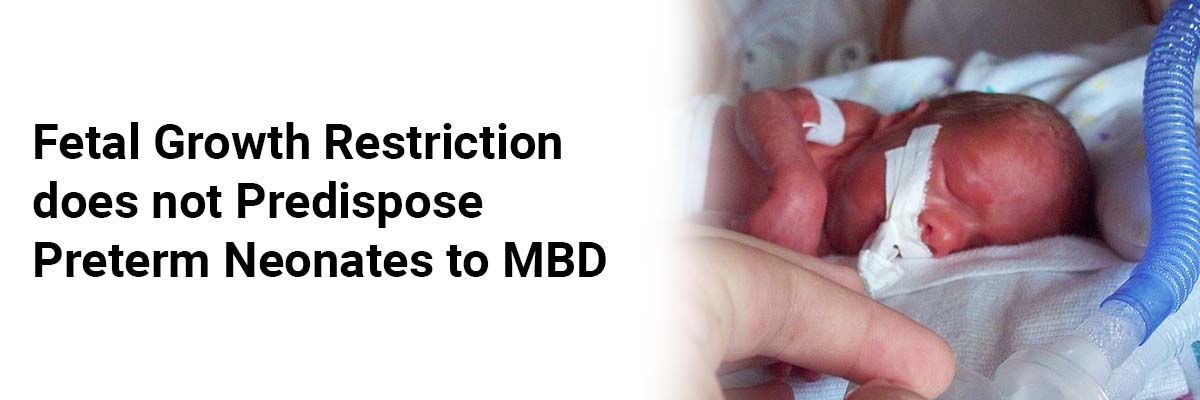
 IJCP Editorial Team
IJCP Editorial Team
Fetal Growth Restriction does not Predispose Preterm Neonates to MBD
A new prospective cohort study aimed to investigate the association between fetal growth restriction (FGR) and metabolic bone disease (MBD) in preterm neonates.
The study included 94 preterm neonates with FGR (cases) and an equal number of gestation-matched neonates appropriate for gestational age (AGA) without FGR (controls). The MBD incidence and serum biochemical markers were compared at various intervals––up to 6 months corrected age.
The results showed that while the incidence of MBD was higher in FGR neonates (15.5%) compared to AGA neonates (6.7%), this difference did not reach statistical significance. Birth weight and time to reach full feeds were identified as significant risk factors for metabolic bone disease after adjusting for FGR status. Both groups had similar levels of calcium, phosphorus, alkaline phosphatase, parathormone (PTH), and vitamin D. Moreover, no significant association was found between MBD and stunting at 6 months of corrected age.
From the findings, it was inferred that FGR is not significantly associated with MBD in preterm neonates – with birth weight and feeding practices appearing to play a role in its incidence.
Source: Peruri GP, Murugesan A, Mondal N, Govindarajalou RK, Keepanasseril A,
Bobby Z, Kamalanathan S. Indian Pediatrics. 2023 Oct;60(10):829-33.

IJCP Editorial Team
Comprising seasoned professionals and experts from the medical field, the IJCP editorial team is dedicated to delivering timely and accurate content and thriving to provide attention-grabbing information for the readers. What sets them apart are their diverse expertise, spanning academia, research, and clinical practice, and their dedication to upholding the highest standards of quality and integrity. With a wealth of experience and a commitment to excellence, the IJCP editorial team strives to provide valuable perspectives, the latest trends, and in-depth analyses across various medical domains, all in a way that keeps you interested and engaged.






















Please login to comment on this article